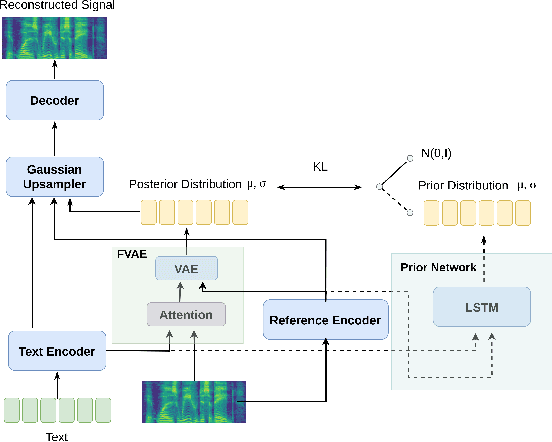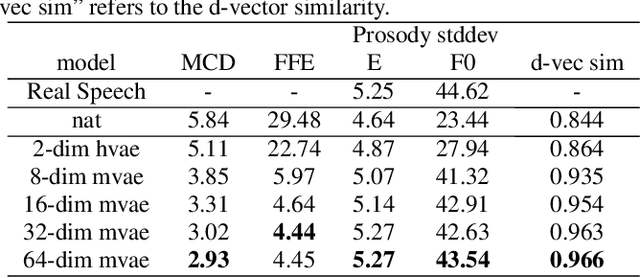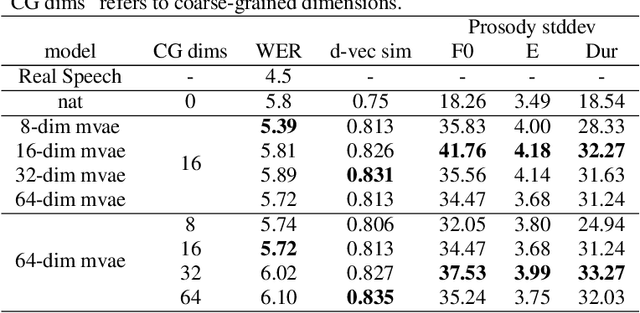Learning utterance-level representations through token-level acoustic latents prediction for Expressive Speech Synthesis
Paper and Code
Nov 01, 2022



This paper proposes an Expressive Speech Synthesis model that utilizes token-level latent prosodic variables in order to capture and control utterance-level attributes, such as character acting voice and speaking style. Current works aim to explicitly factorize such fine-grained and utterance-level speech attributes into different representations extracted by modules that operate in the corresponding level. We show that the fine-grained latent space also captures coarse-grained information, which is more evident as the dimension of latent space increases in order to capture diverse prosodic representations. Therefore, a trade-off arises between the diversity of the token-level and utterance-level representations and their disentanglement. We alleviate this issue by first capturing rich speech attributes into a token-level latent space and then, separately train a prior network that given the input text, learns utterance-level representations in order to predict the phoneme-level, posterior latents extracted during the previous step. Both qualitative and quantitative evaluations are used to demonstrate the effectiveness of the proposed approach. Audio samples are available in our demo page.
 Add to Chrome
Add to Chrome Add to Firefox
Add to Firefox Add to Edge
Add to Edge